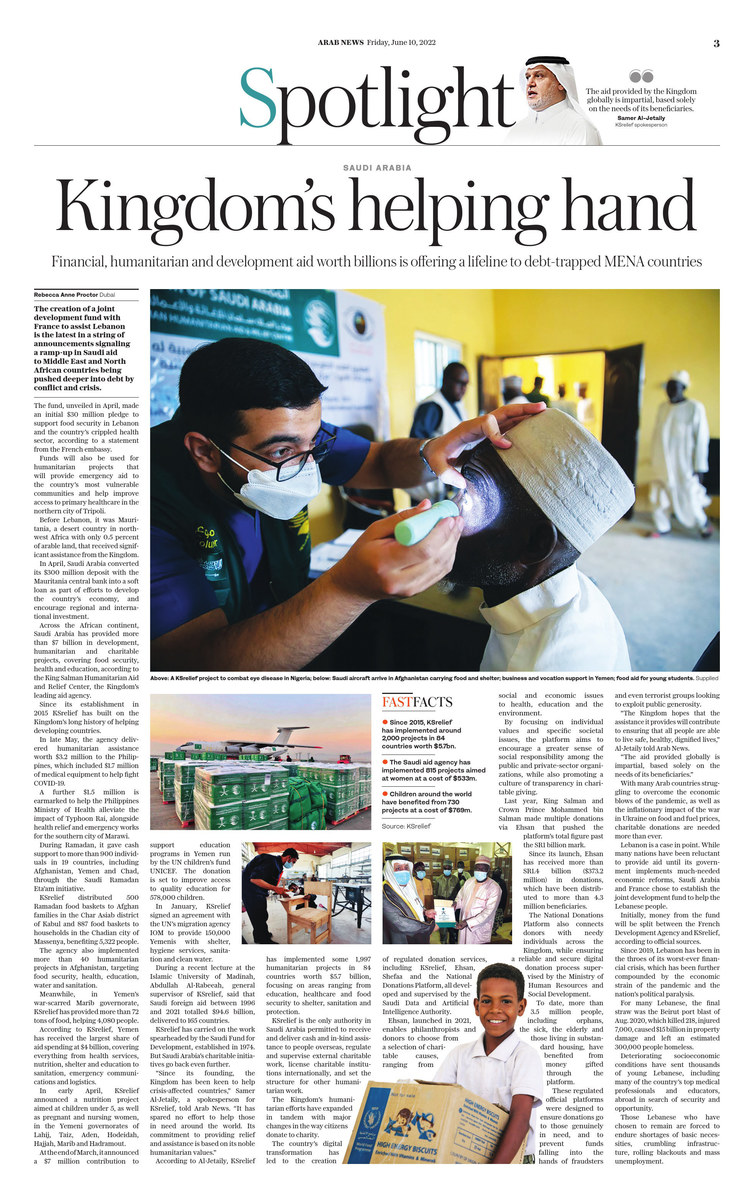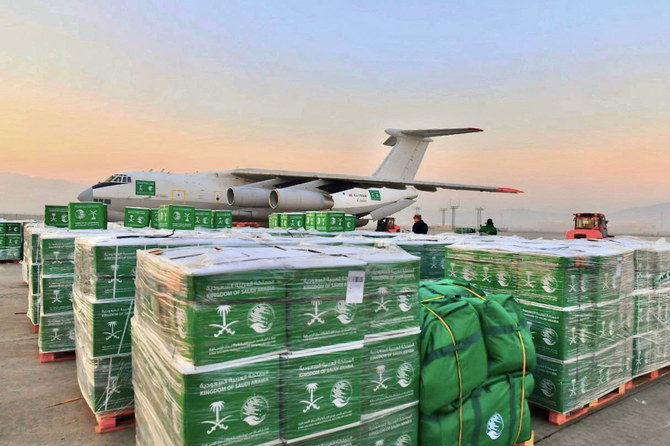DUBAI: The creation of a joint development fund with France to assist Lebanon is the latest in a string of announcements signaling a ramp-up in Saudi aid to Middle East and North African countries being pushed deeper into debt by conflict and crisis.
The fund, unveiled in April, made an initial $30 million pledge to support food security in Lebanon and the country’s crippled health sector, according to a statement from the French embassy.
Funds will also be used for humanitarian projects that will provide emergency aid to the country’s most vulnerable communities and help improve access to primary healthcare in the northern city of Tripoli.
Before Lebanon, it was Mauritania, a desert country in northwest Africa with only 0.5 percent of arable land, that received significant assistance from the Kingdom.
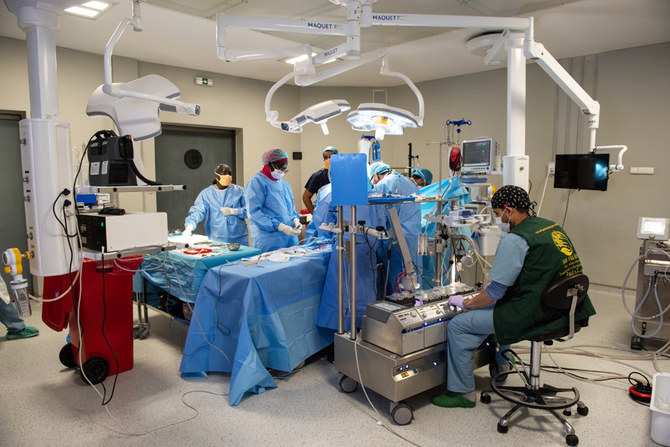
KSRelief medical volunteers performed critical surgeries for indigents in Mauritania in 2020. (Supplied)
In April, Saudi Arabia converted its $300 million deposit with the Mauritania central bank into a soft loan as part of efforts to develop the country’s economy, and encourage regional and international investment.
Across the African continent, Saudi Arabia has provided more than $7 billion in development, humanitarian and charitable projects, covering food security, health and education, according to the King Salman Humanitarian Aid and Relief Center, the Kingdom’s leading aid agency.
Since its establishment in 2015 KSrelief has built on the Kingdom’s long history of helping developing countries.
In late May, the agency delivered humanitarian assistance worth $3.2 million to the Philippines, which included $1.7 million of medical equipment to help fight COVID-19.
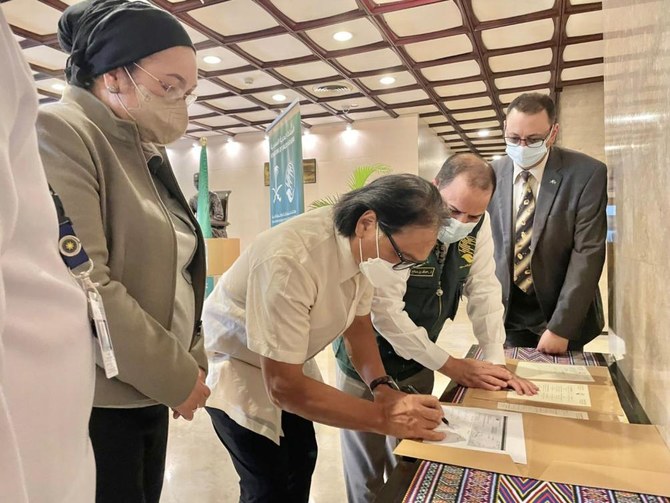
Saudi officials deliver $3.2 million worth of aid to the Philippines last month to mitigate the impacts of Typhoon Rai and to help health relief and emergency works in Marawi City. (Supplied)
A further $1.5 million is earmarked to help the Philippines Ministry of Health alleviate the impact of Typhoon Rai, alongside health relief and emergency works for the southern city of Marawi.
During Ramadan, it gave cash support to more than 900 individuals in 19 countries, including Afghanistan, Yemen and Chad, through the Saudi Ramadan Eta’am initiative.
KSrelief distributed 500 Ramadan food baskets to Afghan families in the Char Asiab district of Kabul and 887 food baskets to households in the Chadian city of Massenya, benefiting 5,322 people.
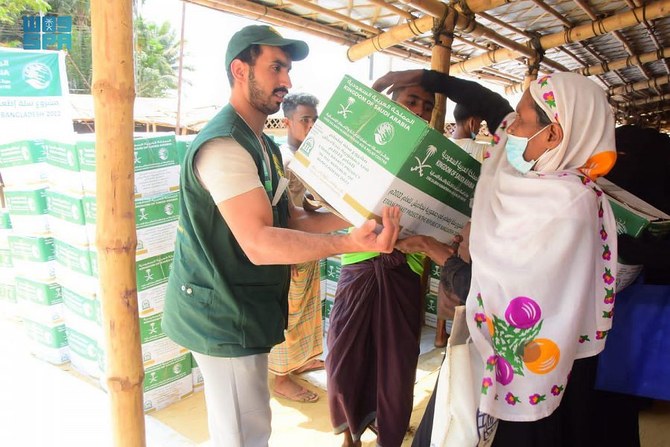
KSrelief workers distributes Ramadan food baskets at the camps of Rohingya refugees in April 2022. (SPA)
The agency also implemented more than 40 humanitarian projects in Afghanistan, targeting food security, health, education, water and sanitation.
Meanwhile, in Yemen’s war-scarred Marib governorate, KSrelief has provided more than 72 tons of food, helping 4,080 people.
According to KSrelief, Yemen has received the largest share of aid spending at $4 billion, covering everything from health services, nutrition, shelter and education to sanitation, emergency communications and logistics.
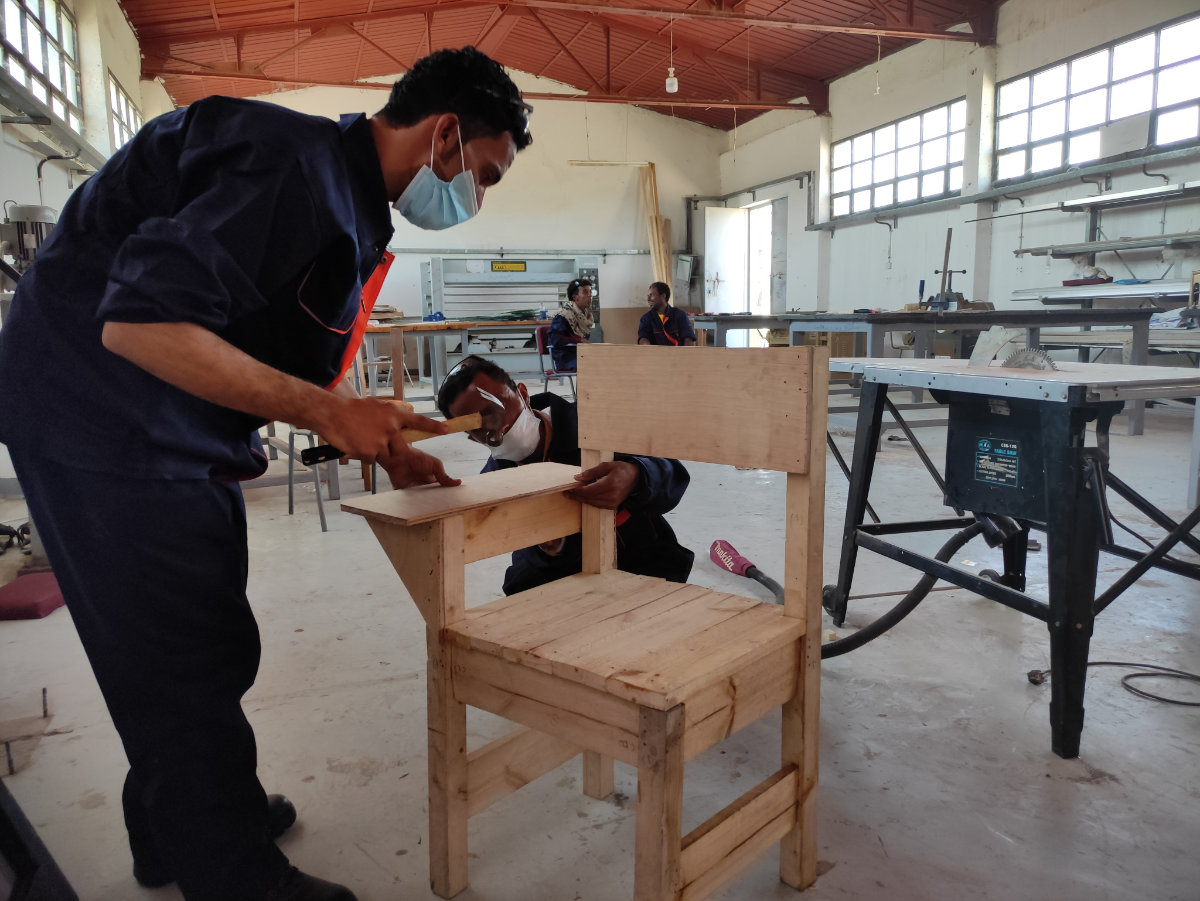
Saudi Arabia continues to contribute to school projects, particularly in Yemen where tens of thousands of schoolchildren have been affected by the ongoing war between the government and the Iran-backed Houthi militia. (Supplied)
In early April, KSrelief announced a nutrition project aimed at children under 5, as well as pregnant and nursing women, in the Yemeni governorates of Lahij, Taiz, Aden, Hodeidah, Hajjah, Marib and Hadramout.
At the end of March, it announced a $7 million contribution to support education programs in Yemen run by the UN children’s fund UNICEF. The donation is set to improve access to quality education for 578,000 children.
In January, KSrelief signed an agreement with the UN’s migration agency IOM to provide 150,000 Yemenis with shelter, hygiene services, sanitation and clean water.
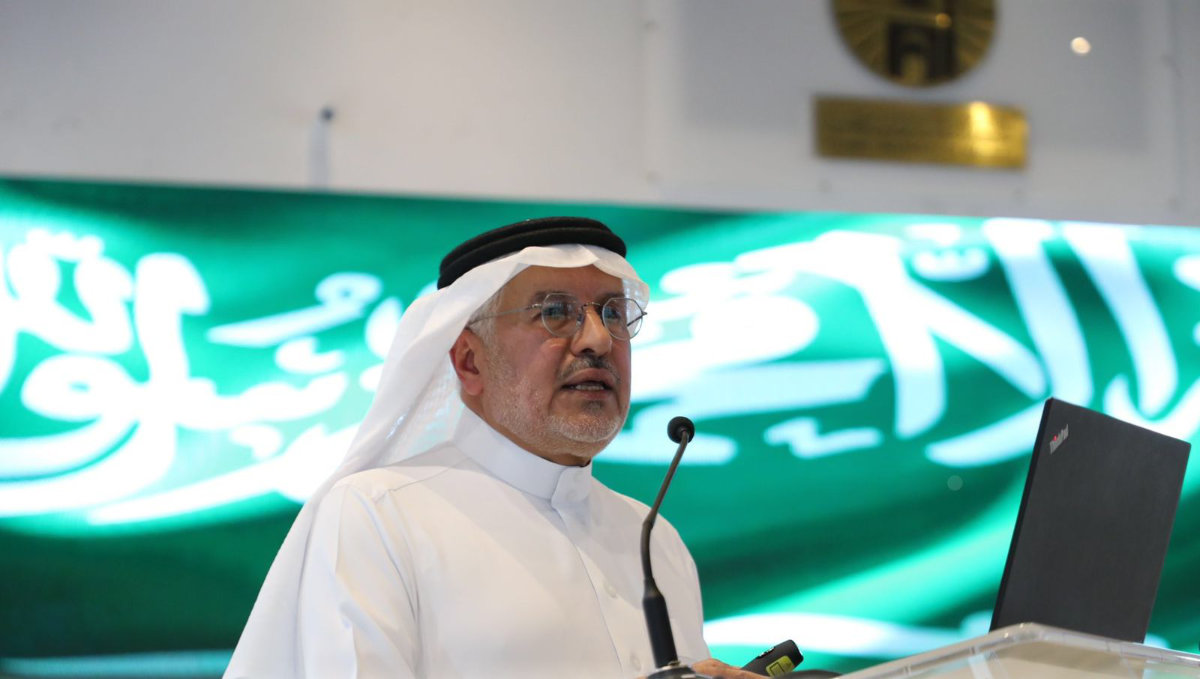
KSrelief's general supervisor, Dr. Abdullah Al-Rabeeah. (Supplied)
During a recent lecture at the Islamic University of Madinah, Abdullah Al-Rabeeah, general supervisor of KSrelief, said that Saudi foreign aid between 1996 and 2021 totalled $94.6 billion, delivered to 165 countries.
KSrelief has carried on the work spearheaded by the Saudi Fund for Development, established in 1974. But Saudi Arabia’s charitable initiatives go back even further.
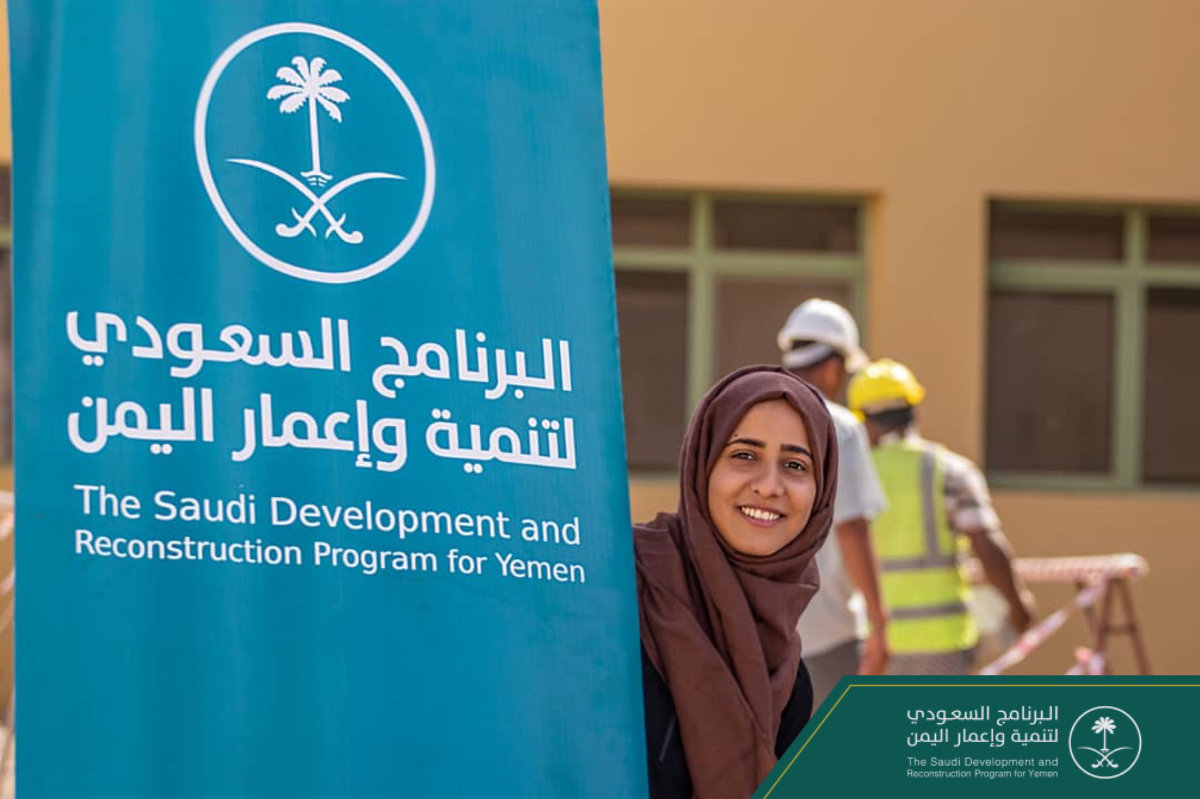
“Since its founding, the Kingdom has been keen to help crisis-affected countries,” Samer Al-Jetaily, a spokesperson for KSrelief, told Arab News. “It has spared no effort to help those in need around the world. Its commitment to providing relief and assistance is based on its noble humanitarian values.”
According to Al-Jetaily, KSrelief has implemented some 1,997 humanitarian projects in 84 countries worth $5.7 billion, focusing on areas ranging from education, healthcare and food security to shelter, sanitation and protection.
KSrelief is the only authority in Saudi Arabia permitted to receive and deliver cash and in-kind assistance to people overseas, regulate and supervise external charitable work, license charitable institutions internationally, and set the structure for other humanitarian work.
The Kingdom’s humanitarian efforts have expanded in tandem with major changes in the way citizens donate to charity.
FASTFACTS
Since 2015, KSrelief has implemented around 2,000 projects in 84 countries worth $5.7 billion.
The Saudi aid agency has implemented 815 projects aimed at women at a cost of $533 million.
Children around the world have benefited from 730 projects at a cost of $769 million.
(Source: KSrelief)
The country’s digital transformation has led to the creation of regulated donation services, including KSrelief, Ehsan, Shefaa and the National Donations Platform, all developed and supervised by the Saudi Data and Artificial Intelligence Authority.
Ehsan, launched in 2021, enables philanthropists and donors to choose from a selection of charitable causes, ranging from social and economic issues to health, education and the environment.
By focusing on individual values and specific societal issues, the platform aims to encourage a greater sense of social responsibility among the public and private-sector organizations, while also promoting a culture of transparency in charitable giving.
Last year, King Salman and Crown Prince Mohammed bin Salman made multiple donations via Ehsan that pushed the platform’s total figure past the SR1 billion mark.
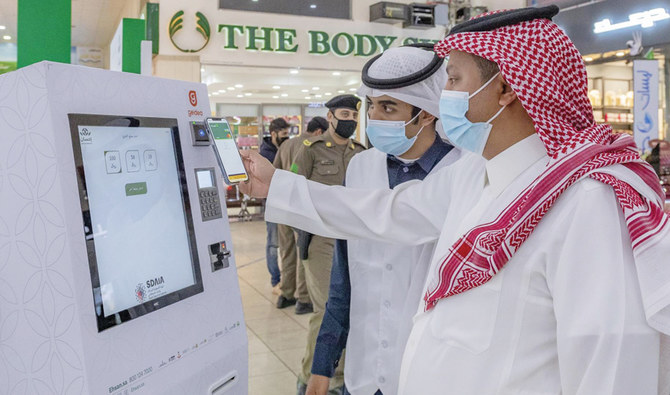
Ehsan has made it easier for Saudi Arabia’s residents to donate to causes such as renovating and furnishing the homes of the needy, giving food baskets to families, and providing care for the elderly. (SPA)
Since its launch, Ehsan has received more than SR1.4 billion ($373.2 million) in donations, which have been distributed to more than 4.3 million beneficiaries.
The National Donations Platform also connects donors with needy individuals across the Kingdom, while ensuring a reliable and secure digital donation process supervised by the Ministry of Human Resources and Social Development.
To date, more than 3.5 million people, including orphans, the sick, the elderly and those living in substandard housing, have benefited from money gifted through the platform.
These regulated official platforms were designed to ensure donations go to those genuinely in need, and to prevent funds falling into the hands of fraudsters and even terrorist groups looking to exploit public generosity.
“The Kingdom hopes that the assistance it provides will contribute to ensuring that all people are able to live safe, healthy, dignified lives,” Al-Jetaily told Arab News.
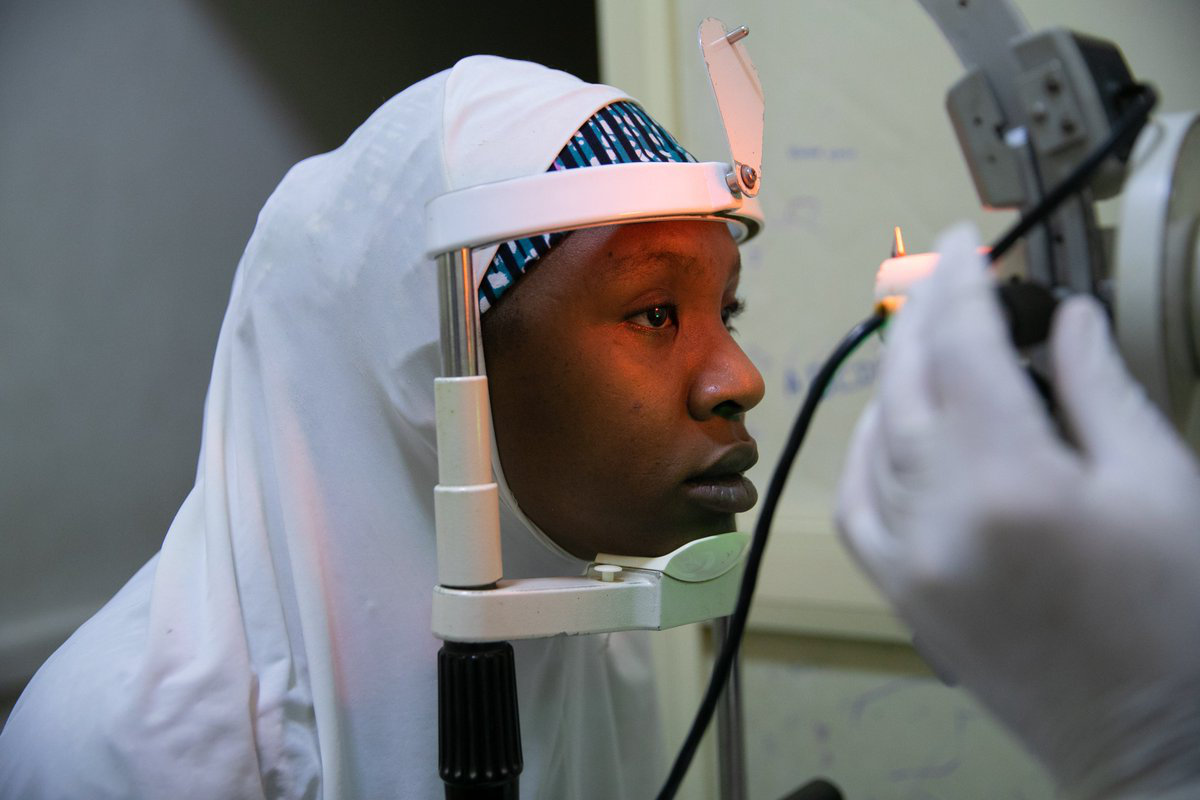
Many underprivileged people in the Middle East and Africa have benefitted from Saudi Arabia's medical aid missions through the years. (Supplied)
“The aid provided globally is impartial, based solely on the needs of its beneficiaries.”
With many Arab countries struggling to overcome the economic blows of the pandemic, as well as the inflationary impact of the war in Ukraine on food and fuel prices, charitable donations are needed more than ever.
Lebanon is a case in point. While many nations have been reluctant to provide aid until its government implements much-needed economic reforms, Saudi Arabia and France chose to establish the joint development fund to help the Lebanese people.
Initially, money from the fund will be split between the French Development Agency and KSrelief, according to official sources.
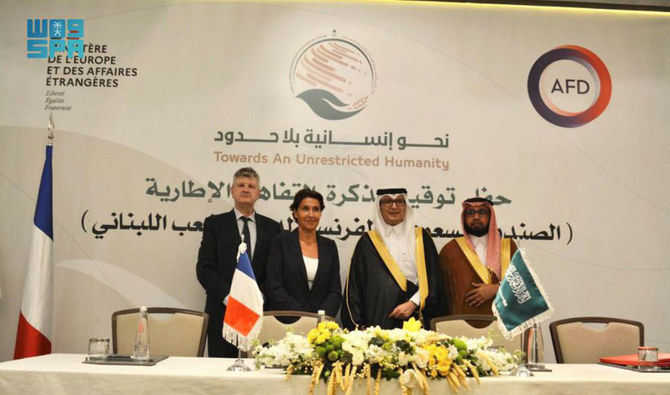
Saudi and French officials join a photo session in Beirut during the signing of an aid agreement for Lebanon. (SPA)
Since 2019, Lebanon has been in the throes of its worst-ever financial crisis, which has been further compounded by the economic strain of the pandemic and the nation’s political paralysis.
For many Lebanese, the final straw was the Beirut port blast of Aug. 2020, which killed 218, injured 7,000, caused $15 billion in property damage and left an estimated 300,000 people homeless.
Deteriorating socioeconomic conditions have sent thousands of young Lebanese, including many of the country’s top medical professionals and educators, abroad in search of security and opportunity.
Those Lebanese who have chosen to remain are forced to endure shortages of basic necessities, crumbling infrastructure, rolling blackouts and mass unemployment.
